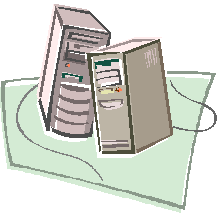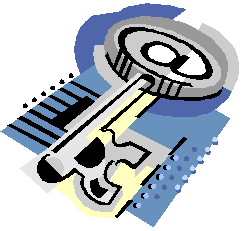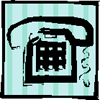| Command Reference | Home |

Certifications

Cisco

Downloads

IP

PC

Protocols

RemoteAccess

Security

Telecommunications

Tools

Unix

Web
Command Reference
For many of these commands, you will find more information by typingat the UNIX command line.man [command]General UNIX commands
- ls -- (List Schema) This command will list the contents of your current directory. It only returns files that are not (.) "dot" files.
- mkdir -- (Make Directory). With this command will create a subdirectory in your home directory.
- cd - (Change Directory) With this command you can move from your current working directory to a new directory.
- pwd -- (Print Working Directory). The pwd command, when evoked, will display the absolute pathname for the directory you are currently in..
- cp (copy). This command will copy a file from one directory to another.
- mv -- (Move) this allows you to move a file from one place to another
- rm - (Remove) This command is used to delete a file.
- rmdir (Remove Directory) This command is used to delete directories.
- clear - Clear the terminal window.
- cat (Concatenate) Can be used to display the contents of a file on the screen.
- more -- The more command is used to view files just like cat except that the more command lets you view the information 1 page at a time.
- head -- The head command writes the first 10 lines of a file to the screen.
- tail -- The tail command writes the last ten lines of a file to the screen.
- grep -- The grep command will search a file for specified words or patterns and prints out each line in which the word or pattern occurs.
- wc -- (Word Count) this gives a word count for a specific filename.
- ping -- allows to determine if a hosts Ethernet configuration is good.
- traceroute -- allows you see the path that a packet must travel to get to its destination.
- ns lookup -- allows you to invoke DNS to lookup a host or IP address.
- .whois -- Script that Queries the InterNic Database for information on a particular host.
- chmod -- Change access modes on files.
- csplit -- Break files at specific locations.
- file -- Determine a files type.
- install -- Set up system files.
- ln -- Create filename aliases.
- rcp -- Copy files to a remote system.
- split -- Splits files evenly.
- banner -- Make posters from words.
- pc -- Precision Calculator.
- cal -- Display Calendar.
- calendar -- Check for reminders.
- kill -- Terminate a running command.
- nice -- Reduce a jobs priority.
- nohup -- Preserve a job after logging out.
- passwd -- Set a password.
- script -- produce a transcript of your login session.
- spell -- report misspelled words.
- su -- Become a superuser.
Printing commands
- cancel -- Cancel a printer request.
- lp -- Send to the printer.
- lpstat -- Get printer status.
- pr -- Format and paginate for printing.
Searching
- egrep -- Extended version of grep.
- fgrep -- Search files for literal words.
- find -- Search the systems for filenames.
- grep -- Search files for text patterns.
- strings -- Search binary files for text patterns.
Shell Programming
- echo -- Repeat input on the output.
- expr -- Perform arithmetic and comparisons.
- line -- Read a line of input.
- sleep -- Pause during processing.
- test -- Test a condition.
Storage
- compress -- Compress files to free up space.
- cpio -- Copy archives in or out.
- pack -- Pack files to free up space.
- pcat -- Display contents of packed files.
- tar -- Tape archiver.
- uncompress -- Expand compressed (.Z) files.
- unpack -- Expand packed (.z) files.
- zcat -- Display contents of compressed files.
System Status
- at -- Execute commands later.
- chgrp -- Change file group.
- chown -- Change file owner.
- crontab -- Automate commands.
- date -- Display or set date.
- df -- Show free disk space.
- du -- Show disk usage.
- env -- Show environmental variables.
- finger -- Point out information about users.
- ps -- Show processes.
- ruptime -- Show loads on working systems.
- shutdown -- Revert to single-user mode.
- stty -- Set or display terminal settings.
- who -- Show who is logged on.
Text Processing
- cut -- Select columns for display.
- ex -- Line-editor underlying vi.
- fmt -- produce roughly uniform lines.
- fold -- Produce exactly uniform line lengths.
- join -- Merge different columns into a database.
- nawk -- New version of awk.
- paste -- Merge columns of switch order.
- sed -- Noninte4active text editor.
- sort -- Sort or merge files.
- tr -- Translate characters.
- uniq -- Find repeated or unique lines in a file.
- vi -- Visual editor.
- xargs - Process many arguments in a manageable portions.
Test Yourself
Think that you know your basic UNIX commands? Do you now how to remove a directory with files in it? Why not take our Unix Commands Quiz and see where you're at?
This page was created in 0.27809 secondsComments and Questions
Last modified: October 26 2003.